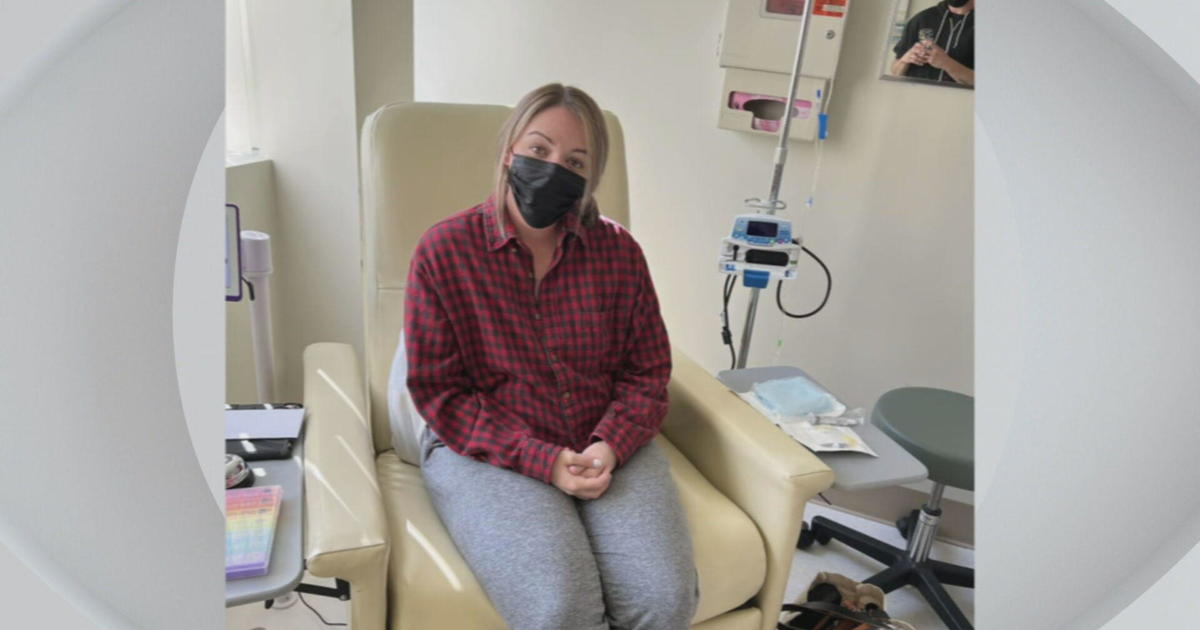Salaries The Main Issue In Addiction Recovery Staff Shortages
BOSTON (CBS) - The number is alarming. Four people die of a drug overdose in Massachusetts every day and as the fatality rate is growing, the number of qualified staff to help fight the epidemic is shrinking.
Three months ago, an emotional Governor Baker signed a new law that curbs access to opioids and steps up abuse evaluations. Vic Digravio, President and CEO of the Association for Behavioral Health Care, applauds the new regulations but also says they are just the beginning of a long road.
"There are still individuals out there who are seeking treatment and have to wait for services. At residential recovery home services, a downstream service after someone is detoxed, the average wait for a bed in Massachusetts is three weeks now. That is a long time to wait for someone who is early into their recovery and still incredibly vulnerable," he says.
THE "BURNOUT FACTOR"
DiGravio says recruiting and retaining staff is also a constant struggle as there is the "burnout factor."
"You are dealing with folks who are just coming to grips with the fact that they need help. Some are still resistant to that help, others are dealing with fractured family situations. You're working with individuals that may not have a stable home environment. It's challenging work," he says, adding that there is also a financial conflict.
"Those folks still need to be able to pay their rent, make car payments and if you can't pay somebody a living wage to do that work, no matter how committed they are, ultimately they will move on," he says.
Molly Kocher is a licensed mental health counselor and substance abuse clinician who has a master's degree in health counseling. Kocher had been working at Bay Cove Addiction Treatment Center in Boston for two and a half years, until last week.
"RESTORATIVE MOMENTS"
At Bay Cove, addicts are given methadone which will help them deal with the physical side of addiction. Counseling and case management services are also provided.
She gave her notice earlier this month, calling it a difficult decision. She loves her work.
"I know this sounds like a cheesy and a cliché answer, but when I'm sitting with clients, those are the restorative moments," Kocher said.
She says her decision to head home to Rochester New York was based, in part, on her salary.
"There are emotional rewards and all of that, but it's really difficult to do a job that is demanding mentally and timewise, and still struggle financially," she adds.
Betty Bredin is Program Director at Bay Cove Addiction Treatment Center and knows it is difficult to provide adequate salaries.
"It's a little like teachers. Teachers and social workers are not valued although I see us very much as the glue that keeps society running, you know, we take care of all of the problems that might arise. We also see the full spectrum of life. Our youngest client is 19 and our oldest is 72," she says.
LIFE-SAVING TREATMENT
Kocher agrees with Bredin's description.
"You sit with clients and they say, 'this has saved my life, you've saved my life ,' certainly I don't think I've saved their life, but it's nice to sit with them and they feel like they've accomplished something, and you can see that change," she explains.
Kocher tries not to give advice, but acts as a sounding board instead. In turn, she uses her colleagues as sounding boards.
"I think if I didn't have my co-workers, I would not be able to do this line of work," she says.
Kocher and her coworkers get together every Friday for lunch and discuss the need to leave their work at the door when they leave. She acknowledges this is skill that she is still working on.
"I think it's really important to listen to yourself, too. If you notice that you're having a strong reaction to a client and are feeling especially frustrated, um, it's really important, I think, to avoid burnout to talk about that." Kocher says her job can take an emotional toll.
"A client came in late, at like 4:59 on a Friday afternoon, saying he didn't have anyone to talk to, but a family friend had just been murdered. I remember going home on the bus that day and could not shake it. I remember thinking about it over the weekend, and it was just heartbreaking. I typically try to keep Friday afternoons open and not see clients and I use that for paperwork because you do need to mentally ease out of it."
A BALANCING ACT
Betty Bredin realizes first hand that balance is needed.
"We're trying hard to keep people happy working in the program. It's a really interesting treatment to work with," Bredin says.
She began working at Bay Cove Addiction Treatment center since 1986, when it started operating the methadone clinic. Over these 30 years, she has seen many changes in the field.
"Many people, including my family, say to me, 'why do you want to do this work,' and I'm like, you have no idea of the rewards. It really is amazing. People get better," she says.
Bredin says she began with a caseload of 12 clients, a number which has now grown to 33. The aids epidemic hit the clinic especially hard.
"We became flooded, absolutely flooded and in the space of probably about 4 years, we went from 60 clients in all, to 200. We discovered then that IV drug users were passing aids with the needles, and I remember the day that one of the doctors from Tufts came to our clinic and said, 'you are going to receive an enormous number of people who are going to become very ill and they will probably die,' and we were absolutely astounded because we were so into recovery and people getting better," she recalls.
Bredin's longevity is rare in an industry that sees an annual 20 to 30 percent staff turnover rate. Most workers at Bay Cove remain for two years which is the time it takes to get licensing after earning a master's degree in social work. Most of these workers are in their mid-to late 20's. This turnover is typical at most treatment and recovery centers around the state. Bredin works to minimize staff burnout.
"I encourage everybody to, from the first year they work here, when they get three weeks, take your vacation, take your time out, have a life," she says, adding that one of the worst things that can happen to clinicians and counselors is when clients suddenly disappear.
"We try to contact the family and we try to contact the person and they may be in jail. We don't know that. They may have overdosed and we don't know that."
SALARY INCREASE A TOP PRIORITY
Bredin's number one priority in retaining staff is raising salaries.
"It really is [priority number one], I mean, just to live in this area. If you're living in Chicopee and you're working in a clinic there, it's very different because you can rent a house or an apartment. It's not possible in Boston," she says.
Bredin doesn't hold much hope that there will be higher pay anytime soon, so she is eyeing some creative options.
"We're looking at trying to get forgiveness on college loans which would be helpful, so you could say, you know, if you work here five years, you will get forgiveness on your master's degree loan, or something."
Franklin State Representative Jeffrey Roy is working on a student loan reimbursement bill that would give 150 dollars a month in relief to certified human service workers.
"You know, we can't offer them a higher salary, but this might be a way to keep these people in these professions so they can provide the services that we know, are badly needed," he says.
If fully implemented statewide, the program would cost 3 million dollars a year. Roy hopes to see a pilot program approved in the next legislative session.
WBZ NewsRadio 1030's Mary Blake reports




